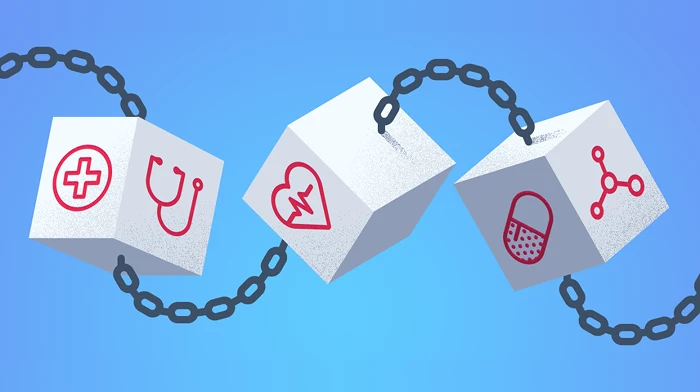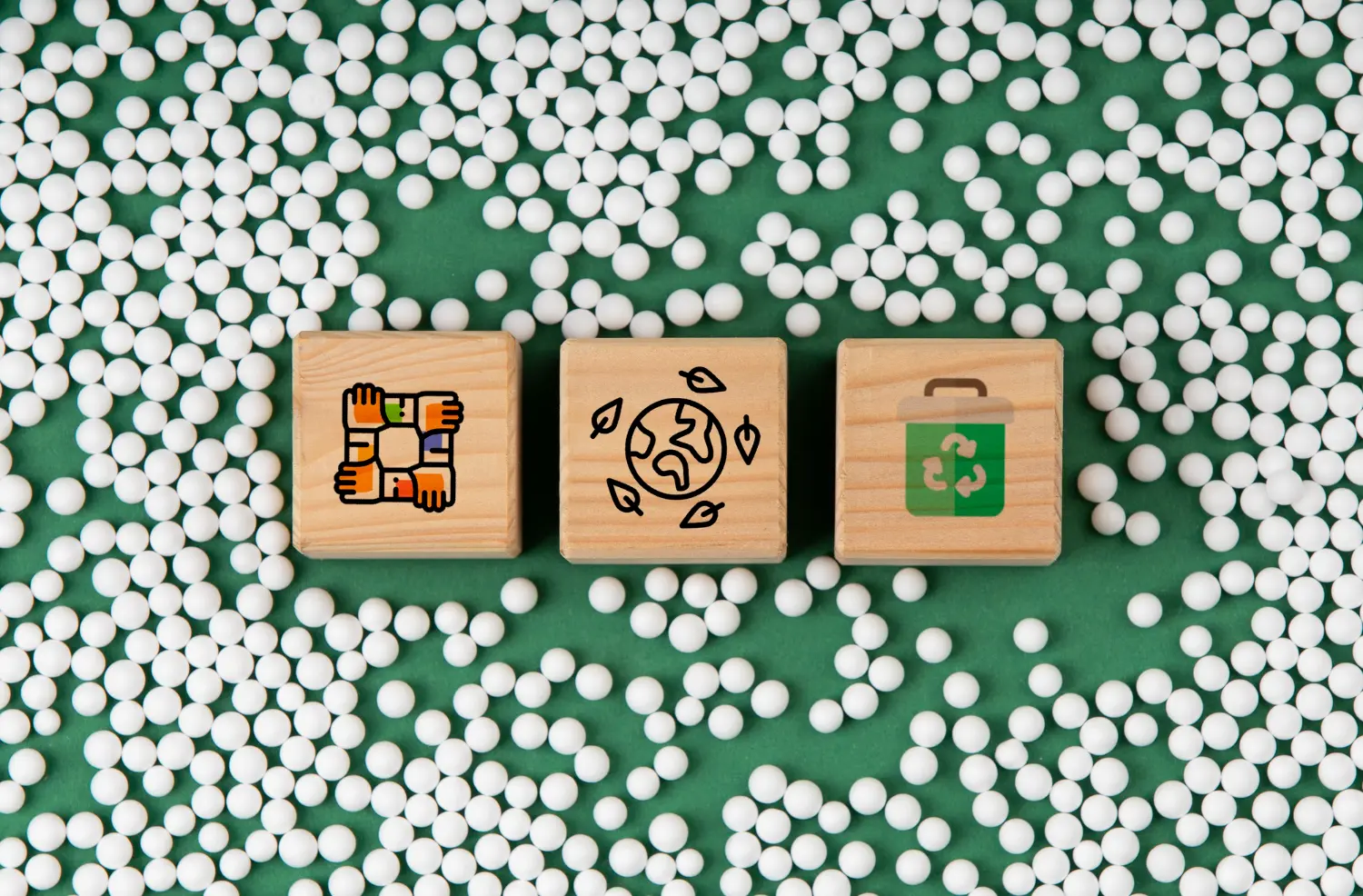
Introduction
Blockchain technology is making waves in a bunch of fields. Its changing the way things have always been done. Its opening doors, to ideas that might not have been possible before.
For instance in the car and health insurance worlds people are really starting to take notice of how blockchain can make things more transparent, secure and efficient. These industries are dealing with some hurdles:
- •They've got a lot of data to manage
- •They need to prevent fraud
- •The transactions can get pretty complicated
Blockchain seems like it could be the thing to tackle these problems.
In healthcare insurance
Blockchain is looking like a game changer, for how data's handled and shared. The problem is, patient info is, over the place. Scattered among doctors, hospitals and insurance companies. This makes it tough to share information and keep it safe.
Blockchain could be the answer offering a platform where approved people can look at patient records without worrying about the information being tampered with or leaked.
We're living in a time where technology is changing everything. The impact of blockchain, on the car and health insurance industries is something that can't be ignored. As these industries start using this technology they're going to see some changes. Things will become more efficient, clearer and more trustworthy which will be good, for both companies and the people they serve.
What are the benefits of working with a healthcare development company that specializes in blockchain technology?
The healthcare industry has undergone a significant transformation thanks to blockchain technology. As the sector looks for ways to handle data and make its processes more efficient blockchain solutions are becoming increasingly attractive.
One way for healthcare organizations to take advantage of this is, by working with a company that specializes in blockchain development for healthcare. This partnership can be a benefit for everyone involved. Healthcare providers, patients and more.
Some of the advantages of teaming up with a blockchain healthcare development company include:
Stronger protection, for our data and personal info
The thing that really sets blockchain technology apart in healthcare is the way it keeps data safe and private. Traditional systems are pretty vulnerable, to security breaches and leaks which can be disastrous when it comes to info.
But blockchain is different. Its decentralized encrypted approach makes it a tough nut to crack for anyone trying to get in without permission. Each time somethings added or changed, its recorded in a way that can't be altered or deleted which's a comfort, for both healthcare providers and patients. They can rest easy knowing their data is locked down tight against cyber threats.
Improved interoperability
Blockchain breaks down barriers, in healthcare by creating one shared space where patient data can be easily exchanged between providers and facilities. This streamlined approach helps doctors and nurses work together effectively making sure each patient gets the treatment at the right time.
With all information, in one place healthcare professionals can focus on what matters. Giving patients the best possible care. The paperwork and bureaucracy that normally slows things down start to fade which in turn helps healthcare organizations save money and allocate their resources wisely.
Better supply chain management
The use of blockchain technology can be a game changer, for the pharmaceutical industry particularly when it comes to supply chain management. It's all about keeping tabs on the journey of products. From manufacture to delivery.
Every step of the way blockchain acts as a watchdog verifying the authenticity of things like medications, vaccines and medical devices. This kind of oversight is crucial, in preventing tainted products from reaching the market. By bringing a level of transparency to the supply chain blockchain helps to safeguard patients from medications ensuring they get the genuine article.
Efficient claims processing
Health insurers can greatly benefit from using blockchain technology. It expedites the claim processing system. Helps root out fraudulent activities. By putting the verification process on autopilot and cutting out the middlemen insurers save an amount of time and money when resolving claims.
Another important aspect is that the record of claims, on blockchain is permanent and can't be altered. This makes it simpler to detect anything or recognize when someone tries to submit a claim, than once.
Patient-centric approach
When it comes to managing their health patients are often, at the mercy of their healthcare providers. What if they could take charge of their medical records?
With blockchain healthcare solutions that's exactly what's possible. Patients can use these platforms to decide who gets to see their information and when. Whether that's a doctor, a nurse or someone else entirely. It's a approach to healthcare and one that helps build trust between patients and the people treating them. As a result patients are more likely to feel engaged and satisfied, with the care they're receiving.
Enhanced clinical trials and research
Blockchain technology has a lot to offer when it comes to research and clinical trials. For instance it can provide an transparent environment where researchers can share data, which in turn allows them to work together efficiently. This collaboration can significantly speed up the pace of breakthroughs.
One way it achieves this is, through contracts self executing contracts, with the terms of the agreement written directly into lines of code. These smart contracts can be used on blockchain networks to automate the execution of trial protocols making sure everything runs according to plan and reducing errors.
Current applications of blockchain in healthcare
The healthcare industry has seen a game changer, in blockchain technology, which is being used to tackle some of its problems and shake up the way things have always been done. What makes blockchain so appealing is its ability to keep records unalterable. Its secure and not controlled by any one entity.
This makes it perfect for improving how data is managed and shared and for providing care to patients. There are ways that blockchain is being used in healthcare:
Electronic Health Records (EHRs)
The idea of putting health records on a blockchain is really interesting. This technology allows for a flexible way of storing records so that different healthcare providers can work together seamlessly. Basically patients get to control who sees their records. They can give the okay to healthcare providers and institutions to access their information.
This means that when patients switch doctors or hospitals their records can be easily shared, without worrying about their privacy being compromised. When all the healthcare providers have access, to the up, to date info it makes it a lot easier for them to work together to care for their patients. Doctors can get a picture of whats going on with their patients, which leads to accurate diagnoses and treatments that are tailored to each persons specific needs.
Medical supply chain management
The way pharmaceutical and medical supplies are managed could be drastically improved with blockchain. Essentially it creates a record of every step, in the chain from making the products to getting them to consumers. This means that medications and medical devices can be guaranteed as authentic and up to standard. Having this kind of transparency is crucial, in fighting drugs lowering the chances of mistakes and making sure patients are safe.
Clinical trials and research
The way we do trials and medical research is being overhauled by blockchain technology. For instance smart contracts, on these networks can handle things like getting consent from participants sharing data and making sure everybody follows the rules of the trial.
By automating all this we can get the data we need quickly analyze it and verify its accuracy. Which's a huge leap forward, for medical research. It basically means we can get through trials faster and do them efficiently.
Patient identity management
Blockchain provides a way to manage identities and confirm patient information. Each patient can have a one of a kind identity stored on the blockchain, which keeps their history and personal details safe and accurate. This cuts down on the chance of someone stealing a patients identity or committing fraud. It helps healthcare providers give personalized care.
Medical credentialing and licensing
When it comes to credentialing and licensing things can get pretty complex, for healthcare professionals. What if there was a way to make the whole process a lot simpler? That's where blockchain comes in.
It allows credentials, licenses and certifications to be stored securely making it easier to verify qualifications. This means healthcare organizations can rest assured that their staff are properly qualified and meeting all the requirements without having to jump through hoops to check.
Drug traceability and adverse event reporting
The use of blockchain technology promises to make a difference, in the pharmaceutical industry particularly when it comes to tracking and tracing drugs as they move through the supply chain. By creating a record of every transaction from the manufacture of a drug to the moment its dispensed to a patient blockchain provides a clear and transparent history of the drugs journey.
This kind of record keeping is invaluable not for purposes but for improving patient safety as well. For instance if theres a problem with a batch of drugs blockchain makes it easier to pinpoint where those drugs are and get them off the market quickly.
There's also potential for blockchain to improve the way adverse events are reported. By capturing and sharing data on drug reactions in time blockchain could help medical professionals respond swiftly and effectively to problems and ultimately make drugs safer, for everyone.
Health insurance claims processing
The way health insurance claims are processed is getting a serious overhaul thanks to blockchain. For one it cuts down on all the work that goes into handling claims, which can be a headache. It helps catch fraudsters in the act.
With contracts the verification and payout process can be automated, making everything move a lot faster. The useful thing, about blockchain is that it keeps records that're totally transparent and can't be tampered with. This makes it a lot easier to spot claims and prevent scammers from causing any harm.
Constraints of using blockchain in health insurance
Blockchain technology has the potential to bring a lot of benefits to the healthcare industry, including health insurance. As, with any tech there are some challenges that need to be thought through. For it to really work we have to get past some hurdles.
One thing to consider is that health insurance is a system and blockchain is still a new tool. When it comes to using blockchain, for health insurance some key constraints come into play:
Regulatory compliance issues
The healthcare industry is a minefield of regulations and bringing in blockchain technology means you have to be careful to avoid all the compliance tripwires. For instance data privacy and security laws, like HIPAA in the US are super strict when it comes to handling information.
So if you want to use blockchain in health insurance you need to make sure it meets all these rules, which's a balance, between keeping patient info private and making it possible to share data securely.
Data standardization and interoperability
The real power of blockchain, in health insurance comes from creating a system where patient data can be shared easily between healthcare providers and insurers without being controlled by an entity. For this to work smoothly there needs to be a language. Or standard. For how data is formatted and shared.
Now the way data is stored and shared in healthcare is over the map, which makes it tough to swap information back and forth. This lack of standardization is a roadblock to getting the most, out of what blockchain has to offer.
Scalability and transaction throughput
When it comes to public blockchain networks, one of the hurdles is their ability to handle a large number of transactions at any given time. For an industry, like health insurance, where a huge number of transactions take place every day having a blockchain that can cope with this volume of data is vital.
To make sure blockchain networks can meet the needs of the health insurance industry some kind of solution to deal with scalability is things, like breaking the data into parts or processing it outside of the main blockchain can help make the network more efficient.
Data migration and integration
Migrating existing data and systems to a blockchain based infrastructure is no task. For health insurers it's a daunting process especially when you consider the amounts of data that need to be transferred onto the blockchain. This data has to be handled with care to ensure it remains intact and accurate.
Then there's the added hassle of making blockchain work seamlessly with systems and electronic health record platforms. A challenge that demands thought and attention, to detail.
Cost and resource investment
Getting blockchain technology up and running in health insurance is an undertaking that demands a lot of time, money and know how. Building and keeping a blockchain network going requires a set of skills. We're talking blockchain development, cybersecurity and data management.
The upfront costs and ongoing expenses can really add up so healthcare organizations have to consider whether the potential payoff is worth the investment.
Change management and adoption resistance
The healthcare industry has a reputation, for being cautious when it comes to trying out technologies. It's no surprise that some people might be hesitant about blockchain. All it's a departure from the way things have always been done.
To win over those who're skeptical its going to take some effort to show them the benefits of blockchain in a way that feels real and relevant. This means taking the time to educate everyone involved being clear and open, in our communication and providing examples of how blockchain can make a difference in the way health insurance works.
Implementation steps for blockchain in the automotive industry
The car industry is, on the cusp of an upheaval and blockchain technology could be the catalyst that drives this change. By harnessing its power the industry can transform the way it manages supply chains tracks vehicle histories and verifies identities.
To make this vision a reality a number of steps need to be taken:
Industry collaboration and education
To really make a difference, in the industry it's crucial that all the major players. From car manufacturers to suppliers and dealerships. Work together. Getting everyone on the page can help spread awareness about what blockchain can do and how it can tackle problems.
One way to make this happen is by hosting workshops, conferences and training sessions where people can learn about blockchain and see how it can be used in real life situations. This kind of collaboration and education can go a way, in getting more people to adopt the technology.
Use case identification and analysis
The automotive industry has its share of problems and inefficiencies. To figure out where blockchain can make a difference it's essential to get a handle on these issues. One place to start is, by looking into areas like:
- •Verifying the authenticity of vehicle parts
- •Making the supply chain transparent
- •Facilitating more secure sales between individuals
By doing research and analysis it becomes clear that blockchain has the potential to bring improvements in these areas, which could have a major impact, on the industry as a whole.
Proof of concept development
Creating a proof of concept is a way to see if blockchain can really work for car companies. By testing it out on a scale people involved can get a sense of whether its worth pursuing, what problems might come up. How it could change the way things are currently done. This saves a lot of hassle and money that would be spent on a project that might not pan out.
Platform selection
Choosing the right blockchain platform is a deal. It really depends on what you're trying to do and what you need. Sometimes a public network is the way to go and other times a private one's better.
Either way there are some things to think about:
- •How well it can handle a lot of users
- •How secure it is
- •Who's, in charge and how decisions are made
Working with people who have a lot of experience building blockchains can make a difference, in picking the tech for your project.
Data standardization and interoperability
To really see blockchain live up, to its promise we need to get everyone on the page when it comes to data formats and protocols. This is essential for making sure that different players, in the industry can work together seamlessly. When data is standardized it's much easier for different systems to talk to each other and share information.
By setting some ground rules and following established practices we can make it a lot simpler to bring systems into the fold and have them work smoothly with whats already in place.
Regulatory compliance and data privacy
When it comes to bringing blockchain into the industry taking care of compliance and data privacy is top priority. The information involved. Both personal and related to vehicles. Is really sensitive so making sure to follow data protection laws like the General Data Protection Regulation is crucial, for earning peoples trust and staying on the side of the law.
Gradual implementation
Of scraping everything and starting from scratch it's better to take an approach when it comes to blending blockchain into existing systems. You can start small with a pilot projects. Then gradually expand from there. This way everyone involved can learn from the things that work out well and deal with any problems that come up. As people get more comfortable, with how blockchain works it becomes easier to tackle projects.
User education and adoption
It's really important to teach people who use our products and services. Customers, car dealers and repair shops. About the things blockchain technology can do for them. This stuff matters because it affects how they deal with the car industry every day.
When people understand how blockchain makes things more secure, clear and efficient they're more likely to start using it. This can help get people, on board with the idea.
Conclusion
The introduction of blockchain technology has been a turning point, for the health insurance industries. Its completely changed how data is handled transactions are carried out. Trust is built. With blockchain these vital areas are becoming more transparent, efficient and secure.
The car industry is one place where blockchain is really making a difference. By using a ledger that can't be altered it's possible to keep track of a vehicles history. From maintenance records, to ownership details. In a way thats both secure and easy to access. This is a deal for everyone involved, from the companies that make the cars to the people who buy them well as dealers and insurers. Essentially it helps build trust and makes the whole process more transparent which in turn reduces the likelihood of fraud and makes things more efficient around.
Using blockchain in healthcare and health insurance makes it easier to manage data speeds up claims and helps different healthcare providers work together more smoothly. When patients have control, over their health information and its kept private and secure the whole system becomes more focused, on their needs.
The landscape of both industries is constantly. Blockchain technology is leading the charge when it comes to innovation. This has been a game changer, for companies giving them the edge they need to thrive in such a changing world. One major breakthrough has been the way blockchain has been successfully woven into the fabric of the health insurance sectors. This is a deal as it signals a move towards a future thats not more efficient but also more transparent and trustworthy.


